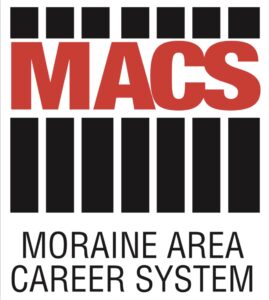Work-based learning provides participants with work-based opportunities to practice and enhance the skills and knowledge gained in their program of study or industry training program, as well as to develop employability, and includes an assessment and recognition of acquired knowledge and skills. Examples include: internships, service learning, paid work experience, on-the-job training, incumbent worker training, transitional jobs, and apprenticeships.
Work-Based Learning Continuum Elements:
- Internships
- Service Learning
- Paid Work Experience
- On-the-Job Training
Apprenticeship Models
An employer-driven, “learn while you earn” model that combines structured on-the-job training (OJT) with job-related instruction in curricula tied to the attainment of industry-recognized skills standards and leading to an industry credential. The OJT is provided by the employer, who hires the apprentice at the commencement of the program and pays the participant during the program.
Registered Apprenticeship
An apprenticeship registered with the U.S. Department of Labor meeting the standards defined by USDOL.
Non-Registered Apprenticeship
An apprenticeship that is not registered with the U.S. Department of Labor, but that meets all Registered Apprenticeship criteria other than application for registration.
Pre-Apprenticeship
A program that has a documented partnership with an employer and is designed to prepare individuals to enter and succeed in a Registered Apprenticeship or Non-Registered Apprenticeship which includes all of the following:
- Training and curriculum that aligns with the skill needs of employers in the economy of the State or region and that has been designed to prepare participants to meet the
minimum entry-level requirements of the Apprenticeship. - Access to educational and career counseling, and other supportive services as needed by participants.
- Hands-on meaningful learning activities that are connected to education and training activities, such as Career Exploration and Career Development Experiences, and that reinforce foundational professional skills including, at a minimum, those outlined in the Essential Employability Skills framework
- Upon successful completion of the program, participants are supported to apply for a Registered Apprenticeship or Non-Registered Apprenticeship program, and may receive
preference for enrollment.
Youth Apprenticeship
A program for youth (ages 16 to 24) currently enrolled in secondary education or pursuing a high school equivalency, including those with disabilities, that include, at minimum, the following:
- 450 hours of paid on-the-job training under the supervision of a mentor;
- At least 2 semesters of related instruction that ideally counts towards a high school and/or postsecondary credential, but minimally leading to an Industry Credential;
- Ongoing and a final assessment measuring success in mastering skill standards;
- Career exploration where participants learn about several positions within the employer and the field; and
Wraparound supports (e.g. case management and counseling) and holistic upskilling (e.g. technical skills and soft skills). - Upon successful completion of the program, participants are supported to apply for one or more of the following: entry-level employment, admission to a Registered Apprenticeship or Non-Registered Apprenticeship program, or admission to other articulated postsecondary education options (including 2- and 4-year programs).
Implementation Guidance:
• Program sponsors may serve a subset of youth within the 16-24 age range instead of the full range.
• Programs must include a documented partnership with an employer.
For any industry area where an Industry Credential does not yet exist, a group of employers that are representative of the industry (including small, medium, and large firms) in Illinois should
determine the critical core competencies that participants should learn through the apprenticeship, and agree to a formal process for recognizing mastery of those competencies.
Credits: Illinois Career Pathways
Work Based Learning Strategies

Illinois P-20 Career Pathways Virtual Trailheads Continues Expanding
Since students cannot engage in face-to-face or on-site work-based learning experiences, Illinois P-20 Career Pathways Virtual Trailhead is bringing people from a wide range of occupations to students remotely. These videos allow students to learn about their work, the skills that are most important in their work, and to benefit from the advice that these professionals have to offer students.
Share the Career Pathways Virtual Trailheads series (scroll down the page to view career videos) with your teachers and students!
To keep up-to-date as new Career Pathways Virtual Trailheads videos are released:
- Follow the P-20 Network on Twitter
- Subscribe to the P-20 Network YouTube Channel
AASA Releases Expanded Pathways Youth Apprenticehship Toolkit Available
The American Association of School Administrators (AASA) has released a new youth apprenticeship toolkit to provide resources for secondary school administrators. The toolkit will help them advocate for and build apprenticeship programs by developing school and business partnerships to create expansive pathways for student success in school, career, and work. The full youth apprenticeship toolkit, informative video interviews, and relevant case studies are available at the AASA Expanded Pathways webpage.
